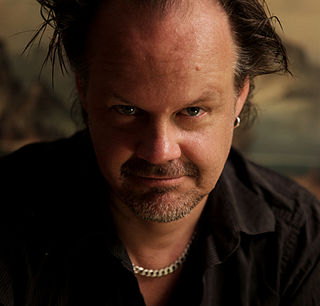A Quote by Louise Rosenblatt
The reader brings to the work personality traits, memories of past events, present needs and preoccupations, a particular mood of the moment and a particular physical condition. These and many other elements in a never-to-be-duplicated combination determine his response to the text.
Related Quotes
I’ve always believed that as an author, I do 50% of the work of storytelling, and the reader does the other 50%. There’s no way I can control the story you tell yourself from my book. Your own experiences, preferences, prejudices, mood at the moment, current events in your life, needs and wants influence how you read my every word.
No man is happier than he who loves and fulfills that particular work for the world which falls to his share. Even though the full understanding of his work, and of its ultimate value, may not be present with him; if he but love it--always assuming that his conscience approves--it brings an abounding satisfaction.
There are constraints on what counts as "Reformed." It's more than a name or a label. It's about belonging to a particular theological stream or tradition, which is shaped in important respects by particular thinkers and their work, particular arguments and ideas, a particular community (especially, particular church communities, denominations, and so on), particular liturgies or ways of worshipping and living out the Christian life, and particular confessions that inform the practices of these communities.
I don't put a very clear label on my work. If anything, I write science fiction - looking at a moment now, in the present, and then extrapolating outward to think about what the future might look like if this particular trend goes on, or if this particular trend is the most dominant. That's a science fictional tool.
Parents are never forgiven for not giving just the right response at the appropriate moment. Or, rather, there are particular times in the adolescent's or young adult's life, when a certain response is needed, and this need is not met, and the failure to meet this need is forever remembered, and is never forgiven.
art is the most general condition of the Past in the present. ... Perhaps no work of art is art. It can only become art, when it is part of the past. In this normative sense, a 'contemporary' work of art would be a contradiction - except so far as we can, in the present, assimilate the present to the past.
Gardeners (or just plain simple writers who write about the garden) always have something they like intensely and in particular, right at the moment you engage them in the reality of the borders they cultivate, the space in the garden they occupy at any moment, they like in particular this, or they like in particular that.
It's no wonder we don't defend the land where we live. We don't live here. We live in television programs and movies and books and with celebrities and in heaven and by rules and laws and abstractions created by people far away and we live anywhere and everywhere except in our particular bodies on this particular land at this particular moment in these particular circumstances.
We must be forewarned that only rarely does a text easily lend itself to the reader's curiosity... the reading of a text is a transaction between the reader and the text, which mediates the encounter between the reader and writer. It is a composition between the reader and the writer in which the reader "rewrites" the text making a determined effort not to betray the author's spirit.
The man who is asleep reacts; he knows nothing of action. And reaction is a binding: it binds you into new prisons, new chains. Response is out of freedom, hence it brings more freedom. Reaction is out of the past; you act according to your memories, built-in by your experiences, conditionings. You react not to the present, not in the present. You don`t reflect the real situation as it is; you go on interpreting it according to your past, your past experiences. The man who is awake is like a mirror: he reflects that which is the case. HE IS AWAKE.
To dwell in the here and now does not mean you never think about the past or responsibly plan for the future. The idea is simply not to allow yourself to get lost in regrets about the past or worries about the future. If you are firmly grounded in the present moment, the past can be an object of inquiry, the object of your mindfulness and concentration. You can attain many insights by looking into the past. But you are still grounded in the present moment.

































